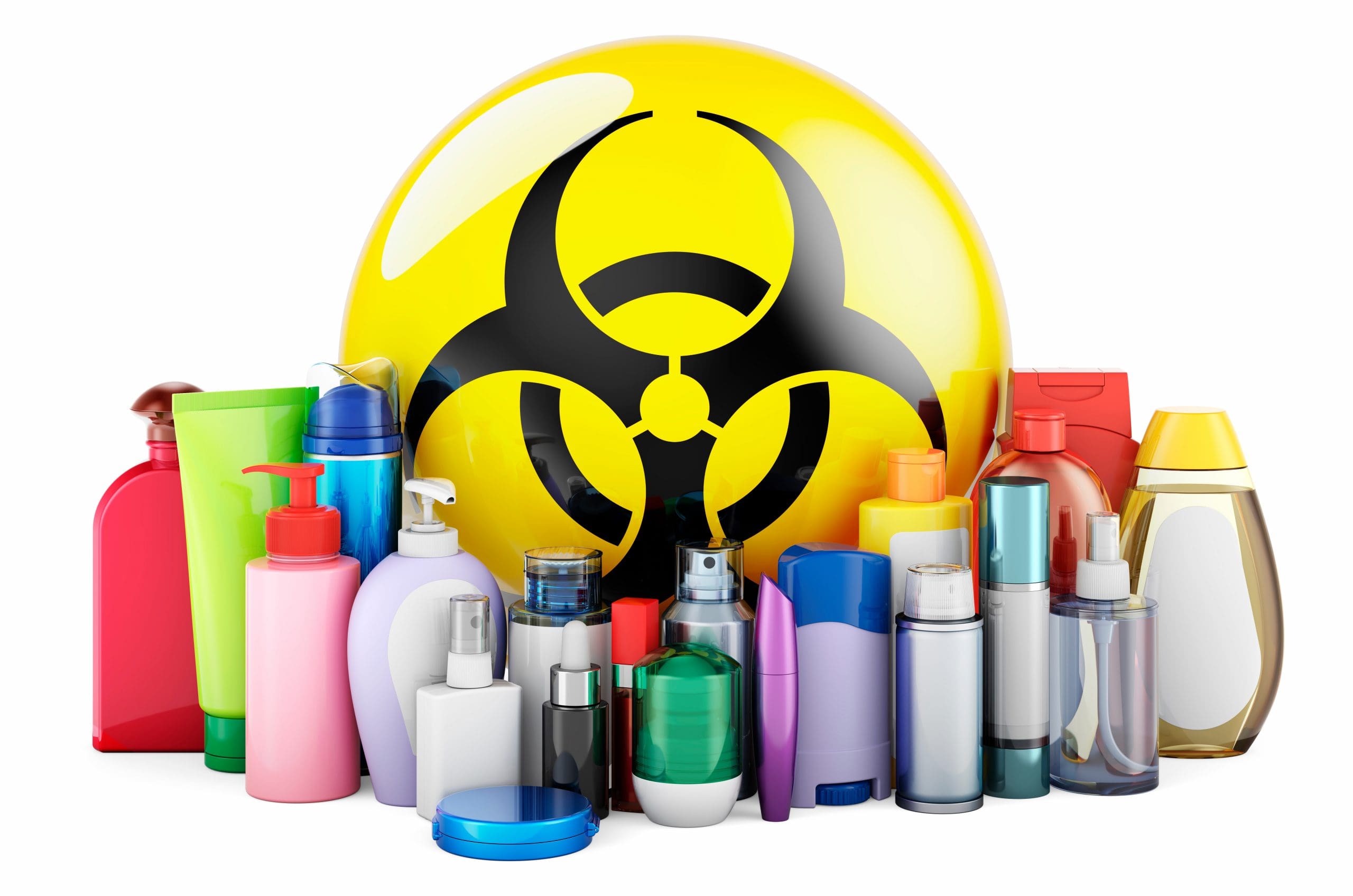Commonly used chemicals raise the risk of type 2 diabetes
By naturopath Margaret Jasinska
Diet and exercise are not the only factors that affect a person’s blood sugar level. Environmental factors also play a role. Each decade, the number of chemicals, plastics and heavy metals we are all exposed to grows. You may not realise that some of them can raise your blood sugar.
A recent study showed that middle aged women who had higher levels of some breakdown products of phthalates had a significantly greater risk of developing type 2 diabetes than other similar women. Phthalates are a class of endocrine disrupting chemicals known as “forever chemicals”. They act as plasticizers. These findings are from the Study of Women’s Health Across the Nation Multipollutant Study (SWAN-MPS), by Mia Q. Peng, PhD, MPH, and colleagues. They were published in the Journal of Clinical Endocrinology & Metabolism.
Phthalates are everywhere
Phthalates are commonly added to personal care products such as perfume and fragranced skin and body care , nail polish, and are used as solvents, plasticizers, and fixatives. They can also be added to polyvinyl chloride plastic products, such as plastic food packaging, clothing, and vinyl flooring. Interestingly, the researchers said “If phthalates are removed from plastics and other consumer products, we do have to be careful in the process to avoid replacing them with some other potentially harmful chemicals.” A good example of this is BPA free plastics that replaced bisphenol A with other bisphenols such as bisphenol-F (BPF) or bisphenol-S (BPS). The alternatives are just as toxic. Good for marketing, but terrible for your health.
Adverse health effects of phthalates
Phthalates can adversely affect your sex hormones. They have the ability to reduce luteinising hormone production, increase follicle stimulating hormone production and delay ovulation. They can also impair your body’s ability to manufacture sex hormones. Phthalates interfere with the action of insulin in your body, therefore make weight loss much more difficult, and can make it harder to control your blood sugar level. In some people, this can raise the risk of type 2 diabetes. Phthalates are also implicated as one cause of worldwide declining sperm counts.
Phthalates mimic the actions of oestrogen in your body, therefore pregnant women exposed to high levels of phthalates are more likely to give birth to sons with genital abnormalities. These include undescended testes (cryptorchidism) and hypospadias (where the opening of the penis is on the shaft, rather than on the tip). Boys with those conditions are at higher risk of testicular cancer in adulthood. Phthalates are also thought to contribute to early puberty in children.
Recommendations for minimising exposure to phthalates:
- Minimise the use of plastic water bottles and food storage containers. Particularly avoid keeping oily foods in any plastic containers, as fat is able to draw plastic molecules from the container and into your food. Use glass, ceramic and stainless steel containers instead.
- Never eat hot food or drink hot liquids out of plastic containers. Heat promotes the migration of plastic into food.
- Avoid using cling wrap, particularly if it comes into contact with food.
- Don’t give plastic teething rings or chew toys to infants. Use wooden toys or rusks instead.
- Many cosmetics and personal care products contain phthalates, as a component of the fragrance. Therefore it is best to purchase fragrance free products. Fortunately there are now several brands of entirely natural cosmetics and personal care products that are free of phthalates and other undesirables.
- Avoid using air freshener in your home. Get rid of the source of odour instead and use pure essential oils to fragrance your home.
Tips for improving detoxification
- Try to have a healthy liver. Fatty infiltration of the liver has become a major problem over the last decade. Most of the toxins in your body are fat-soluble, so they tend to accumulate in body fat, bone marrow and the brain. If you have a fatty liver, it can draw toxins to it like a magnet. Your liver produces bile, which travels to the gallbladder and then gets released into your small intestine. Bile is a major excretion route for wastes and toxins. People with a fatty liver typically do not produce enough bile. Follow the recommendations in the book Fatty Liver: You Can Reverse It.
- Nutritional imbalances and deficiencies of vitamins, minerals, antioxidants, essential fatty acids, and sulfur-bearing amino acids can impair detoxification. A diet that is deficient in protein and has excess industrial seed oils and sugar can inhibit detoxification pathways inside the liver cells. Nutrient deficiencies can occur due to inadequate intake, or poor absorption because of gut problems.
- Enzyme polymorphisms are quite common. These are genetic variations in the amounts and types of enzymes in the liver cells which can impair the efficiency of detoxification. Some people need higher levels of B vitamins than others, because they have impaired methylation.
- Leaky gut syndrome is an epidemic. If the intestines are inflamed this will allow toxins, microbes and large food molecules to be absorbed from the digestive system into the bloodstream. These toxins will eventually be carried to the liver where they will need to be broken down and excreted from the body. This means your liver will be less able to deal with environmental chemicals you are exposed to. Removing gluten, dairy products and sugar from the diet helps to heal leaky gut. Gut Health powder is healing to the gut lining.
- Following a low carbohydrate diet will make it easier to maintain a healthy blood sugar level. Minimise or avoid sugar, grains, cereals and starches. It is easiest to avoid sugar if you are eating adequate protein and natural fats. Meat, seafood, poultry, eggs and whey protein powder are all highly satiating foods.
- Do the Dr Cabot 15 Day Cleanse. The cleanse program has been carefully designed to support your liver and gut in removing toxins from your body. It also assists with healing gut damage and reducing inflammation in the body.
Reference:
Endocrine Society, news release, Feb. 8, 2023









Leave A Comment